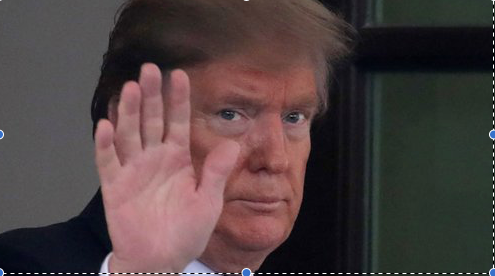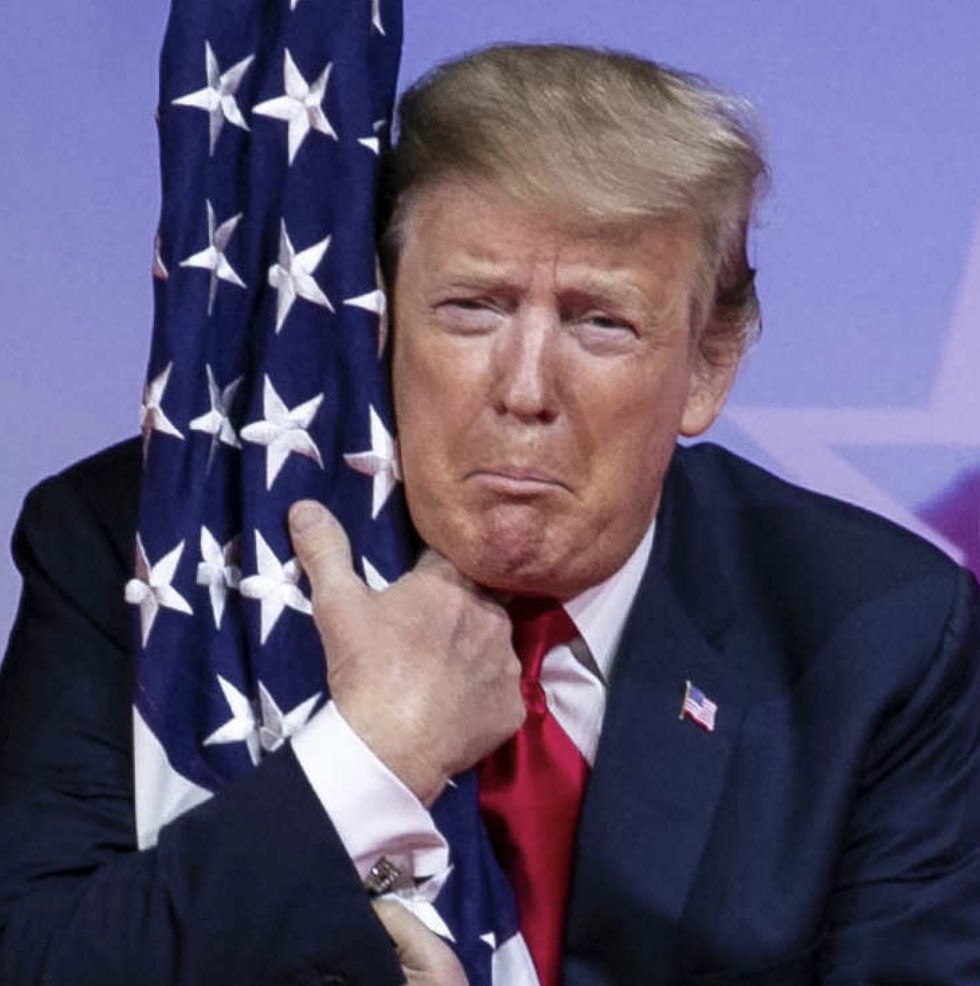

POTUS speeches have come and go, but long tirades about the failures of the government are beginning to sound the alarm.
Words like invective, polemic, denunciation, rant, broadside, attack, harangue, verbal onslaught are just some descriptions.
President Donald Trump lasted over two hours. He reportedly included more than dozens of false or misleading statements. @realDonaldTrump spoke at @CPAC over the weekend on #GreenNewDeal, immigration, taxes, the Mueller investigation, unemployment and more. Here are his comments, fact-checked: http://bit.ly/2Tx5LZR
Wait, there's more… While he appeared to be losing his mind in a delusional speech and it was not covered that way, we'd like to say this was not only the longest speech of his presidency, but since he riled up the crowd letting loose on topics ranging from the #TrumpRussia investigation and the #Democrats to free speech on college campuses during his speech to activists at the Conservative Political Action Conference, President Trump pledged to issue an executive order that would deny federal research funds to colleges and universities that do not “support free speech.”
We strongly support freedom of expression on campus and the rights of faculty and students to invite speakers of their choosing. And we support the institutional autonomy of colleges and universities and the roles of faculty, administration, and governing boards in institutional decision-making. This proposal is a dangerous solution to a largely nonexistent problem.
Even if the current political environment poses significant problems for free speech, the view that the free exchange of ideas no longer occurs on campuses is exaggerated. There are and always will be individuals on campus and in society generally who wish to silence those with whom they disagree. But punitive and simplistic measures will only exacerbate the problems they may create. While the specific provisions of the promised executive order have not been revealed, they would doubtless be of a kind with the problematic provisions of recent state-level legislation that seeks to regulate free speech —in ways more likely to stifle than encourage free expression and diversity of opinion.
Then, since he chose to take off and go off script, #CityImages compiled a lengthy list of tirades from other #DictatOrators.
An academic colleague asked about similarities with other infamous types. Why run so long and what are they really trying to hide?
Muammar al-Gaddafi should have spent at least 20 minutes talking about his fashion trends because that would have been more interesting. Seriously, did you see the way this man dressed? I wonder if he just rambled on because no one would let him pitch his tent. Now, I speak about five phrases in Arabic, and I can't write or read it, but this picture of his notes doesn't make it seem there was a lot there. So he's good at improvising. Still, at 96 minutes, Gaddafi is about 3 hours behind Fidel Castro, who holds the record for the longest speech given before the General Assembly.
Hugo Rafael Chávez Frías was a Venezuelan politician and the President of Venezuela from 1999 until his death in 2013. He was the leader of the Fifth Republic Movement from its foundation in 1997 until 2007 when it merged with several other parties to form the United Socialist Party of Venezuela, which he led until 2012. Born into a working-class family in Sabaneta, Barinas, Chávez became a career military officer, and after becoming dissatisfied with the Venezuelan political system, he founded the secretive Revolutionary Bolivarian Movement-200 in the 1980s to work towards overthrowing the government. He once spoke for eight hours on TV.
Fidel Alejandro Castro Ruz thrilling speech on "The Denouncement of Imperialism and Colonialism" is the longest speech given before the UN General Assembly, lasting almost 4 1/2 hours. Castro is known for his beard and his lengthy interminable speeches, the longest clocking in at 7 hours and 10 minutes from the 1986 Communist Party Congress. I wonder if he just tells stories about CHE Guevara and how wild and crazy those revolutionary times were.
I never thought I'd start a sentence defending Joseph Stalin, but it has been reported that he only spoke at length when delivering his lies for Central Committee of Congress. And he had to address economic, political, cultural, and foreign policy developments and predictions of future happenings for the next 10 to 20 years. So it's understandable that speeches would drag on and on. Oh if you wanted to leave during the speech, no problem. You'd just be arrested the next day, there was at least one story about an 11-minute standing ovation.
Meanwhile, we're trying to confirm how long a few others lasted...
Adolf Hitler spoke for hours. The Austrian-born German leader of the Nazi Party was chancellor of Germany from 1933 to 1945 and Führer of Nazi Germany from 1934 to 1945. The criminal dictator of Nazi Germany was at the center of WWII in Europe, and the Holocaust. Hitler was a decorated veteran of WWI. He joined the German Workers' Party in 1919 and became a leader of the NSDAP in 1921. In 1923, he attempted a coup in Munich to seize power. The failed coup resulted in Hitler's imprisonment and wrote his political manifesto.
Benito Amilcare Andrea Mussolini was an Italian politician, and leader of that nation as Prime Minister from 1922 until his ousting in 1943. He ruled constitutionally until 1925 when he dropped all pretense of democracy and set up a legal dictatorship. Known as Il Duce, Mussolini was one of the key figures in the creation of fascism.
Karl Marx was a German philosopher, economist, sociologist, journalist, and revolutionary socialist. Marx's work in economics laid the basis for much of the current understanding of labor and its relation to capital, and subsequent economic thought. He published numerous books during his lifetime, the most notable being The Communist Manifesto and Das Kapital. Born into a wealthy middle-class family in Trier in the Prussian Rhineland, Marx studied at the Universities of Bonn and Berlin where he became interested in the philosophical ideas of the Young Hegelians. After his studies, he wrote for Rheinische Zeitung, a radical newspaper in Cologne
Vladimir Ilyich Ulyanov, alias Lenin was a Russian communist revolutionary, politician and political theorist. He served as head of government of the Russian Soviet Federative Socialist Republic from 1917, and of the Soviet Union from 1922. Under his administration, the Russian Empire was replaced by the Soviet Union; all wealth including land, industry, and business was nationalized. Based on Marxism, his political theories are known as Leninism. Born to a wealthy middle-class family in Simbirsk, Lenin gained an interest in revolutionary leftist politics following the execution of his brother Aleksandr in 1887
Chairman Mao Zedong was a Chinese Communist revolutionary and founding father of PRC People's Republic of China, which he governed that Communist Party of China from its establishment in 1949. His Marxist-Leninist theories, military strategies, and political policies are collectively known as Marxism-Leninism-Maoism aka Mao Zedong Thoughts. He too went on, and on...etc.